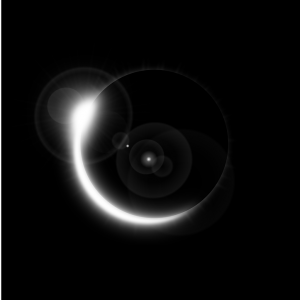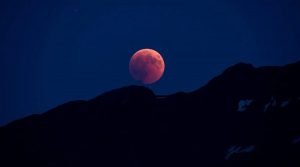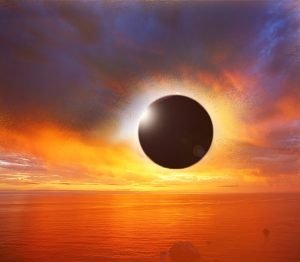This is the year of surprises. Another one is knocking at the door. No, it is not another unfortunate news; it is a unique phenomenon. Both the lunar and the solar eclipses will be recorded in June 2020. For astronomers and scientists this is going to be a unique opportunity as they can study these astronomical events like never before. In 2020 we will get to see a total of four penumbral lunar eclipses, out of which the first one took place between in January. The second penumbral lunar eclipse of the four lunar eclipses is expected to occur in June. The rest are scheduled to occur in July and November.

Most parts of Europe, Asia, Australia, Africa, South/East South America, Pacific, Atlantic, Indian Ocean, and Antarctica will witness this lunar phenomenon, as per the studies by timeanddate.com. This lunar eclipse is speculated to last for 3 hours, 18 minutes. In the account that follows, you can know more about the upcoming solar and lunar eclipses in the country as well as their respective dates and time.
Just in case you want to know, an eclipse occurs when the light from one celestial body is blocked by another, before it reaches a third body. This means that the celestial body in between casts a shadow on the third body.
There are three types of lunar eclipses:

Between 5th and 6th June, the second penumbral lunar eclipse of 2020 is estimated to occur. This penumbral lunar eclipse is known as 'Strawberry Moon Eclipse', which becomes a shade darker when this penumbral lunar eclipse reaches its maximum phase. During a penumbral lunar eclipse, the Moon moves through the faint, outer part of the Earth’s shadow called the penumbra, thus becoming very faint.
As per the reports, almost 57% of the Moon will pass into the Earth’s penumbra during the upcoming ‘Strawberry Moon Eclipse’. Also, visibility of this moon will become comparatively fainter on account of being a penumbral eclipse.

However, an eclipse never comes alone. A solar eclipse always occurs within a difference of almost two weeks of a lunar eclipse. It occurs either before two weeks or after. This year, it is calculated that an Annular solar eclipse will occur on 21st June.
We know the dates but how about knowing the exact timings beforehand so that we are ready to welcome the eclipses. Lunar eclipses will be visible from any place on the Earth where night falls, if the sky is clear.
* During this eclipse, the moon is above the horizon.
Source: timeanddate.com*
Another report by the trustworthy resource Sky and Telescope states that the outer part of the Earth’s penumbra is very pale. Thus, many people will not be able to notice anything until the Moon’s edge slides at least halfway in. Apart from this, other two penumbral lunar eclipses of the year will occur between 4th July and 5th July, and the next falls between 29th November and 30th November.
If you are a moon enthusiast, you can watch the eclipse from your home. However, it might look too pale. But you can still watch lunar eclipse in its best form online, thanks to the websites hosting such phenomenon. Popular channels have been said to host livestreams, telecasting the eclipse. The time is here again to enjoy star gazing with your loved ones and spend your time admiring the skies together.
I am looking forward to these exceptional phenomena. What about you? Do let me know in the comments below.

Most parts of Europe, Asia, Australia, Africa, South/East South America, Pacific, Atlantic, Indian Ocean, and Antarctica will witness this lunar phenomenon, as per the studies by timeanddate.com. This lunar eclipse is speculated to last for 3 hours, 18 minutes. In the account that follows, you can know more about the upcoming solar and lunar eclipses in the country as well as their respective dates and time.
Just in case you want to know, an eclipse occurs when the light from one celestial body is blocked by another, before it reaches a third body. This means that the celestial body in between casts a shadow on the third body.
There are three types of lunar eclipses:
- Total
- Partial
- Penumbral

Between 5th and 6th June, the second penumbral lunar eclipse of 2020 is estimated to occur. This penumbral lunar eclipse is known as 'Strawberry Moon Eclipse', which becomes a shade darker when this penumbral lunar eclipse reaches its maximum phase. During a penumbral lunar eclipse, the Moon moves through the faint, outer part of the Earth’s shadow called the penumbra, thus becoming very faint.
As per the reports, almost 57% of the Moon will pass into the Earth’s penumbra during the upcoming ‘Strawberry Moon Eclipse’. Also, visibility of this moon will become comparatively fainter on account of being a penumbral eclipse.

However, an eclipse never comes alone. A solar eclipse always occurs within a difference of almost two weeks of a lunar eclipse. It occurs either before two weeks or after. This year, it is calculated that an Annular solar eclipse will occur on 21st June.
We know the dates but how about knowing the exact timings beforehand so that we are ready to welcome the eclipses. Lunar eclipses will be visible from any place on the Earth where night falls, if the sky is clear.
* During this eclipse, the moon is above the horizon.
| Eclipses | Visible in New Delhi* (IST) |
| Penumbral Eclipse begins | 5th June, 23:15 |
| Maximum Eclipse | 6th June, 00:54 |
| Penumbral Eclipse ends | 6th June, 02:34 |
| Annular Solar Eclipse begins | 21st June, 9:15 |
| Full Eclipse | 21st June, 10:17 – 14:02 |
| Maximum Eclipse | 21st June, 12:10 |
| Annular Solar Eclipse ends | 21st June, 15:04 |
Source: timeanddate.com*
Another report by the trustworthy resource Sky and Telescope states that the outer part of the Earth’s penumbra is very pale. Thus, many people will not be able to notice anything until the Moon’s edge slides at least halfway in. Apart from this, other two penumbral lunar eclipses of the year will occur between 4th July and 5th July, and the next falls between 29th November and 30th November.
If you are a moon enthusiast, you can watch the eclipse from your home. However, it might look too pale. But you can still watch lunar eclipse in its best form online, thanks to the websites hosting such phenomenon. Popular channels have been said to host livestreams, telecasting the eclipse. The time is here again to enjoy star gazing with your loved ones and spend your time admiring the skies together.
I am looking forward to these exceptional phenomena. What about you? Do let me know in the comments below.
A very knowledgeable post
ReplyDeleteI m very excited to see Solar and Lunar Eclipses, this is very informative blog 😄
ReplyDelete